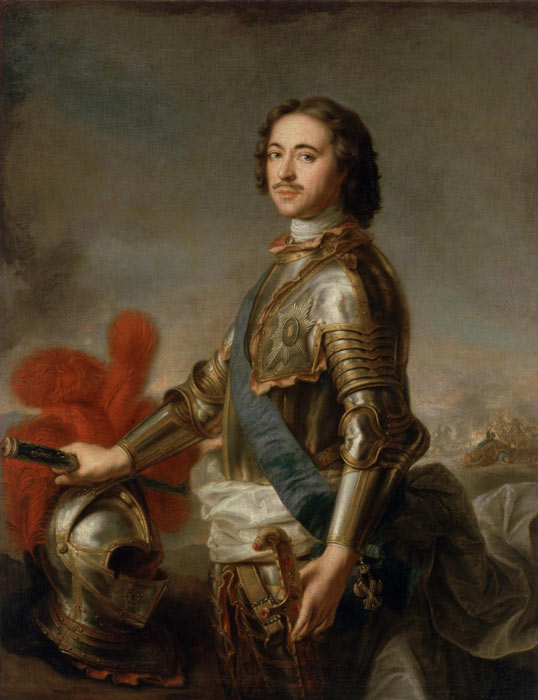Peter the Great Ordered a Beard Tax to Discourage Russian Facial Hair!
Peter the Great (1672 – 1725 AD), ruler of the Tsardom of Russia, was so hellbent on modernizing Russia according to European standards that he ordered all men to ditch their long overcoats and shave their beards. When his hard-line stance caused uproar, he softened the rules and introduced a beard tax instead so that men had to pay for the privilege of sporting a beard.
The beard has had a long and proud tradition throughout Russian history. Facial hair was so important, in fact, that the Russkaya Pravda (Rus’ Justice), a series of Old Russian Laws dating to the 12th century, decreed that the fee penalty for interfering with a man’s beard or moustache was four times higher than the penalty for stealing a horse or cutting off a finger! It was a man’s honor and masculinity and was also closely tied in with religious beliefs – in the Russian Orthodox Church, being clean-shaven was seen as blasphemous.
So, when Peter the Great embarked on his ambitious project to bring Russian society in line with Western European models by changing its economy, government, culture, and religious affairs, he underestimated the resistance.

Portrait of Peter the Great (Public Domain)
Perhaps it was his initial approach that made the new laws hard to swallow - at a reception held in Peter’s honor, not long after his return from Europe, the tsar is alleged to have personally shaved the beards from his horrified guests. And to enforce his ban on beards, the tsar empowered police to forcibly and publicly shave those who refused to do so themselves.
Peter soon realized that this policy was extremely unpopular. He faced such a backlash of opposition from the nobility, peasants, and the Russian Orthodox Church that he was forced to backstep. Instead of forcing his subjects to shave their beards, Peter decided that those who wished to keep their beards had to pay a ‘beard tax’.
The tax levied depended upon the status of the bearded man: wealthy merchants were charged 100 rubles per year, townsfolk were charged 60 rubles per year, and peasants were charged two half-kopeks every time they entered a city.
Those who paid the tax were required to carry a "beard token". This was a silver token for the nobles and copper for the commoners depicting the lower part of a face with nose, mouth, whiskers, and beard.
The tax remained unpopular and difficult to enforce, and it was repealed by Catherine the Great in 1772. Perhaps it is thanks to Catherine that many Russian men continue to wear their beards with pride in the present day!
Top image: Russian with a beard. Source: venerala / Adobe Stock
Read more: The Great and Not So Great Deeds of Peter the Great
By Joanna Gillan




















Comments
Please don't tell Obiden, I can't afford to shave, let alone a tax not to. LOL
So dopey politicians have existed for a long time hey!